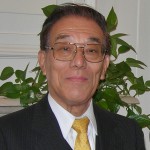[By Hidehiro Kikuchi, President of the Japan Monetary and Financial Policy Research Institute]
On June 23, the British voters who supported the nation leaving the European Union won in the referendum, and on Nov. 28, the world was shocked to see Republican candidate Donald Trump win in the U.S. presidential election. As a matter of fact, I was expecting both of the results. I won bets with many of my friends and they treated me to lunch. In both countries, which were the first to adopt globalization and neoliberalism – policies that only works for the rich – the state is weakened by ballooning debt and is divided because of widening gaps in many aspects of people’s lives. Considering such a situation, I predicted a big backlash in the votes.
In Britain, which accepts immigrants as a member of the European Union, the people’s real income dropped nearly 10 percent after the 2008 global financial crisis following the collapse of Lehman Brothers. In the U.S., after Ronald Reagan, who served as president between 1981 and 1989, adopted neoliberal policies, real income increased only for the top 1 percent of Americans, with the rest following the path to poverty. Although tax burdens for the rich and big companies were reduced, the benefits do not trickle down because they don’t take measures to expand job opportunities. Now it has become clear that only the top 1 percent can become happy there.
The results also mean the people of Britain and the U.S. have showed through voting that the notion of globalization making people happy is wrong. It is a significant historical fact that the globalization myth was debunked in the countries which were the first to adopt neoliberalism.
On Nov. 21, U.S. president-elect Trump said in a video released on social media that his governing agenda would be based on “putting America first.” “I want the next generation of production and innovation to happen right here, in our great homeland: America – creating wealth and jobs for American workers,” he said. Among his first actions, Trump said he would issue notification of intent to withdraw from the Trans-Pacific Partnership agreement, which he called “a potential disaster for our country,” and replace it with negotiating “fair bilateral trade deals that would bring jobs and industry back onto American shores.” Trump apparently prefers bilateral negotiations to the multilateral TPP framework. He could even be thinking about signing a bilateral trade agreement with Japan.
On Nov. 10, Japan’s Lower House voted to ratify the TPP agreement and passed a related bill. The government and the ruling bloc are determined to get the pact approved during the current Diet session. Despite the fact that the TPP deal without the U.S. would be ineffective, why is Prime Minister Shinzo Abe so persistently seeking to realize the agreement? Abe’s basic foreign policy principle is to deepen Japan-U.S. alliance, form an economic alliance with countries which share the same values and build an anti-China coalition.
However, Abe’s foreign policy is likely to be affected by Trump’s pledge to withdraw from the TPP trade deal. Moreover, if Japan ratifies the deal, the points where Japan made compromises will be unveiled, and it can put Japan at a disadvantage by giving Trump chances to ask for more compromises.
Japan’s food self-sufficiency rate stands at 40 percent on a calorie intake basis, the lowest among major industrialized nations. It is urgently needed to raise the sufficiency rate and protect the nation’s agriculture from the aspect of food security. Trump’s pledges to put his country first and bring back jobs to the people hold true for Japan as well. Underscoring the two aims, let us work together to create a strong agricultural sector by maintaining and strengthening the Japanese-style agricultural organization and system that suit the nation’s conditions.
<Profile> Born in 1936 in Tokyo, Hidehiro Kikuchi worked at the former Bank of Tokyo (the current Bank of Tokyo-Mitsubishi UFJ) after graduating from the University of Tokyo. He served as professor of the business administration department at former Bunkyo Women’s University (current Bunkyo Gakuin University) from 1995 and became the president of the Japan Monetary and Financial Policy Research Institute in April 2007.


